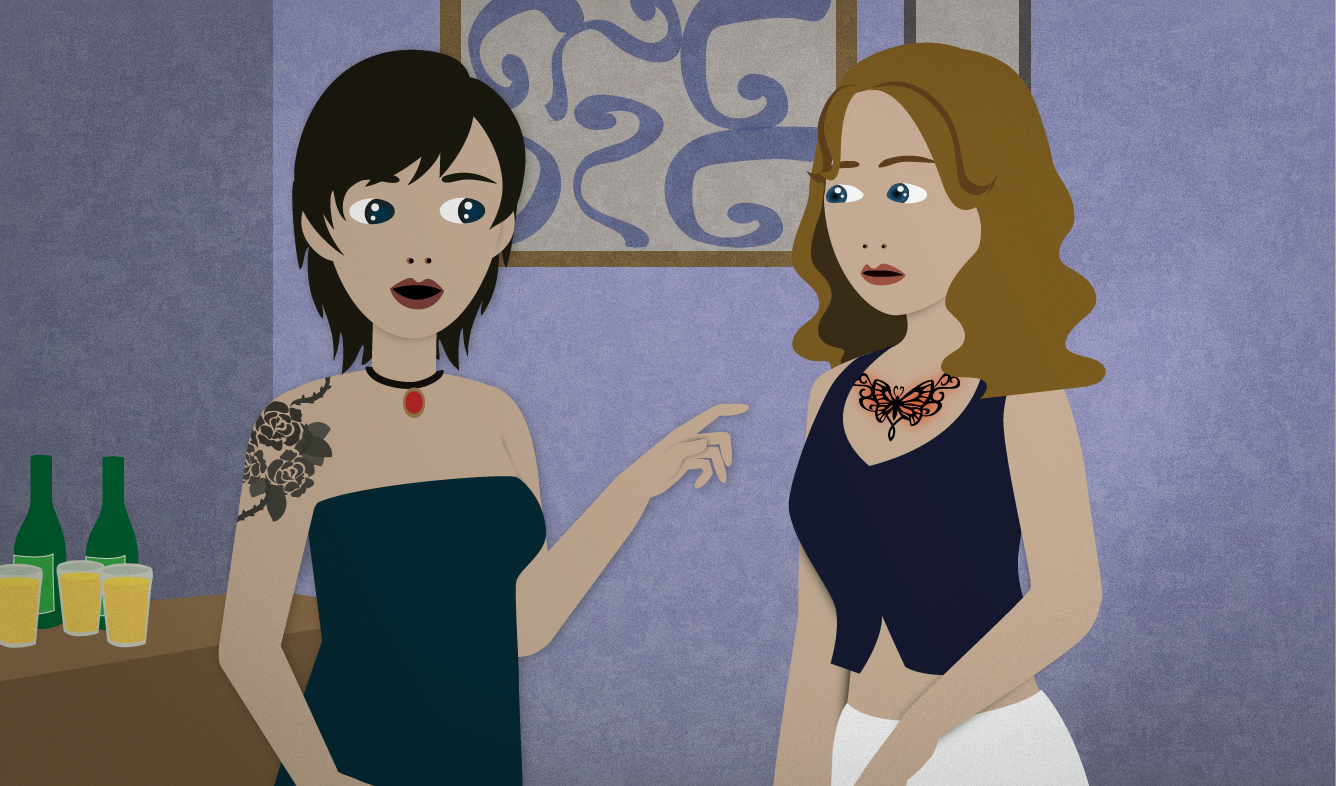“Like I said, you need to keep it bandaged until it's fully healed.”
Your friend just got her first tattoo. You've had tattoos before, so you gave her some advice. Now you see that she's taken off the bandage, but it's too soon. You tell her to put it back on.
Like I said, you need to keep it bandaged until it's fully healed.
Want Video and Sound? Follow us on YouTube

Like I said, (sentence)
Use the phrase "Like I said, ___" when you're going to repeat some advice or opinion that you said before. For example:
A: I don't see it.
B: Like I said, it's on the right!
Two times when you would especially use "Like I said" are:
- When you gave someone advice earlier, and now it's clear that you were right.
- When you gave someone advice earlier but they haven't done what you told them to, and you want to repeat it.
You can also use phrases like "Like I've said before" and "Like I always say".
keep (a wound) bandaged
A "bandage" is something that you put on top of a cut, scrape, or other wound. It's some kind of clean material that stops bleeding and protects the wound from getting dirty.
If someone has a wound, you can tell them to "keep it bandaged". That means to not take the bandage off.
Make sure to keep it bandaged for at least a day or two.
(an injury has) fully healed
An injury that has "fully healed" is completely OK now. There are no more problems with it.
I sprained my ankle last week, and it hasn't fully healed yet.
A phrase for an injury that has healed some, but not fully, is "partially healed":
I had a bad shoulder injury. It's partially healed now.
